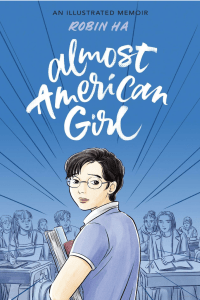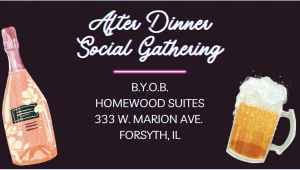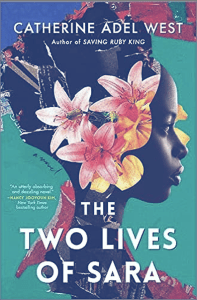| Build your personalized conference schedule by clicking the star in the upper left corner of the box for a desired session. For a session description, click on the session box. |
Friday 20 Oct 2023
8:30 AM - 8:50 AM Plenary Session 1
IATE Business Meeting and Welcome Session
Andrew Rodbro and Kimberly MusolfBanquet AB
- Andrew Rodbro, North Lakes District Leader, Conference Master of Ceremonies: Conference Overview
- Kimberly Musolf, Special Projects Chair: Connecting with Colleagues
9:00 AM - 9:50 AM Breakout Session A
Community in Action
Alyssa Staley, Carbondale Middle SchoolCollaboration 146
How to add a zinger to the end of a novel unit that deals with hard topics. Go through the steps to create a discussion panel of experts. Your principal loves it, your school board loves it, and your students love it. This conversational piece is the type of activity that students will remember long after they have left your classroom and building behind them. It gives them a safe place to ask questions, make statements, and be heard while receiving wisdom, advice, and encouragement by community members who are experts in their fields.
Ditching Multiple Choice Tests: Using Problem Based Learning as measurements of student learning through the use of Real World Experiences
AngelaNina David Escanilla, Unity Junior High SchoolCollaboration 142
Time and time again, students are asked to [recite information at the end of each unit, often in the form of multiple choice tests. But through this practice, the line between information learned vs. information memorized becomes increasingly blurred. Creating a Real World Experience provides students with the opportunity to learn through the use of inquiry: questioning, researching, presenting, and applying their learning to real life. Each Real World Experience is a culmination of literature, writing, history, and of course, civics. Through the accompaniment of both whole class and small group novels, students create genuine displays that reflect what they have learned and how their newfound knowledge can be applied to current events. In this session, you will be introduced to an example of a Real World Experience, which serves as each unit’s summative assessment. We will discuss planning, how to create assignments that align with Standards-Based Grading, and even take a look at a few student examples.
When you put this all together, just make sure you don't have things separated from their names, etc. It requires some fenagaling in the end, but it looks clean.
Interviews and Cross-curricular Writing
Nicoline Shoffer, Fenwick High SchoolCollaboration 144
How can you get students to connect deeply with a text and the historical context in which it is written? How is a person impacted by the historical events that happen during their lifetime? How do authors draw on historical and cultural events in developing their characters? Using interviews, students see a connection between their family's history and the historical events that occurred during various generations. We can then use these interviews as primary sources for authentic responses to literature. We will brainstorm ways in which interviews can be incorporated in your existing curricula.
Shaking Up Shakespeare: Bringing the Play Back into Shakespeare’s Plays
Shannon Radcliffe, Lincoln Community High SchoolCollaboration 140
Groans erupt from your class as you announce the start of your next unit, Shakespeare. How do you combat the negative feelings students already have about Shakespeare? How do you make Shakespeare fresh for this generation of students? This presentation is full of ideas about how to combat some of the most common problems when teaching Shakespeare: language barriers, negative stereotypes, drama terms and vocabulary, disengagement, and boredom.
10:00 AM - 10:50 AM Breakout Session B
Adventures in Empathy: Inviting Videogames into First Year Writing
Mark Brand and James Drown, University of Illinois ChicagoCollaboration 142
Building on the work of Bonnie Ruberg and Stephen Greer, we unpack affordances of otherness in mainstream video gaming. Voraciously consumed by our students, games-as-texts do ludic and narrative work akin to literary fiction: they encourage confronting, understanding, and bonding with the unfamiliar. In the writing classroom, these mass-texts are an emerging vector of empathic response, academic engagement, and digital literacies.
When you put this all together, just make sure you don't have things separated from their names, etc. It requires some fenagaling in the end, but it looks clean.
Authentic Classroom Management Strategies for the High School ELA Classroom
Angie Heiser, Putnam County High SchoolCollaboration 146
Looking for ways to manage your classroom that create positive spaces for students to be themselves? Wanting to avoid yelling and power struggles between yourself and your students? Looking for something more sustainable and fulfilling than relying on admin to "discipline" on your behalf? My name is Angie Heiser, and I have some tips and tricks for you! I have been in the high school ELA classroom for 10 years and have implemented a variety of tactics that have helped me build a sustainable classroom management plan that has changed my teaching career. Join me as I give you ideas to change your perception of "classroom management" and help you create something sustainable and enjoyable for yourself and your students.
Teacher 101
John Barrett, Pleasant Plains Middle SchoolCollaboration 138
Do you find yourself run ragged by the demands placed on teachers in a post-Covid world? John Barrett has been teaching for nearly 3.5 decades and has some ideas to share about how to care for your inner teacher.
Teaching Consent Through YA Literature
Genevieve Sherman and Deborah Althoff Will, Zion Benton High SchoolCollaboration 144
This presentation will take a look at teaching consent through various books. We will define consent, look at songs that both ask for and ignore consent, and dive into books that allow readers to see the four aspects of consent for this unit. Teachers will leave with a unit of work that is valuable and engaging.
11:00 AM - 11:50 AM Breakout Session C
Authentic Responses to Refugee: Pre-Service Teachers, Social Activism, and Assessment Design”
E. Mariah Spencer, Chrissie Durbin, Syncere Williams, and Brianna Zangara, Illinois State UniversityCollaboration 138
This panel centers on the development of authentic assessments to increase student engagement and improve learning outcomes. In it, pre-service teachers shift students from passive consumers to content creators and social activists, while working with the YA novel Refugee by Alan Gratz. In addition to sharing their research, planning, and discovery, each presenter will bring three carefully formulated questions related to assessment design and their future teaching, which they will pose to audience members. Our hope is that educators from around the state can offer these teacher candidates constructive feedback related to their assessment designs and the instructional units in which they will one day be taught.
Choosing Literary Texts that Matter Now and Writing About Them in a Way that Does, Too: A Writing-to-Learn Activity that Deepens Analysis, Reflection, and Community
Kate Sjostrom, University of Illinois, ChicagoCollaboration 144
This session will explore resources for relevant text selection and guide participants in a writing-to-learn activity that invites them to weave their own narratives into a literary text to simultaneously develop analytical thinking, writing fluency, self-awareness, and classroom community.
Inquiry & Literacy: Using Authentic Problems and Real Student Conversations to Engage Students
Mark Patton and Nicole Boudreau Smith, Adlai E. Stevenson High SchoolCollaboration 146
We all want our students to be engaged; we want them to be seen, heard, valued AND captivated by the curriculum. However, as the year goes on, activities like bellringers, team-building exercises, and daily brain breaks become less effective and less engaging, and they don’t generate student excitement about the content of the class. What if it didn't need to be that way? What if curriculum could be authentically engaging? The presenters will share a guaranteed and viable approach to curricular design that centers current, controversial questions; by putting questions that matter at the center of unit design, teachers are empowered to privilege student voice and meaning-making above student compliance.To make school authentic and exciting, we don’t need to ditch the standards or revamp the reading: we need to shift how we think about teaching and learning, including inquiry-based units, discussion modalities that can be applied to any unit, and strategies to enhance student reading, writing, and overall literacy.
What’s In Your Bag? Unpacking Implicit Bias
Stephanie GatesCollaboration 142
This is a workshop designed for educators at any stage of their career to examine the role of implicit bias, also known as unconscious bias, in both their personal and professional lives. In this workshop, participants will engage in a variety of activities to increase their awareness of implicit bias, and understand the impact of implicit bias on their teaching practice. Participants will learn to recognize how implicit bias shows up in the classroom.
12:00 PM - 1:00 PM Plenary Session 2, Friday Lunch
Featured Speaker, Robin Ha
Robin HaBanquet AB
Robin, a life-long reader of comics, grew up in Seoul, South Korea, and moved to the United States at age 14. After graduating from Rhode Island School of Design, she moved to New York City and worked in the fashion industry before diving into comics. She strives to make comics that are entertaining and also empower the readers to become more accepting of themselves and others. Robin is the author and illustrator of Almost American Girl, a 2020 Harvey Award nominee and 2021 Walter Award honoree memoir, and Cook Korean!: A Comic Book With Recipes, a New York Times bestselling cookbook graphic novel.
| Book Signing with Robin Ha Friday 1:00 p.m. - 1:30 p.m. |
1:00 PM - 1:30 PM Book signing the Oberhelman Center for Leadership Performance
No workshops in this session.
1:30 PM - 2:20 PM Breakout Session D
Fostering Resilience: utilizing differentiated strategies to support all students in cultivating a growth mindset and becoming metacognitive readers and writers
Nicole Lombardo, Adlai E. Stevenson High SchoolCollaboration 142
We need to be pioneers who embrace our resilient spirit. Participants will gain specific ideas to create warm, supportive, engaged, and hard-working classrooms where students feel a strong sense of belonging. These methods can easily be incorporated into any lesson and will strengthen the student-to-student bonds as well as the student-to-teacher relationship in order to help students reach optimum academic success.
How many ways can we come to know a text?
Timothy Duggan, Northeastern Illinois UniversityCollaboration 146
Session D1
This interactive, participatory session will engage attendees in working collaboratively through a short but complex text, engaging all the tools in our repertoire, including, but not limited to, close reading, linguistic analysis, arts-based inquiry, contemporary and historical critical theory, analogical thinking, and reader response. Our goal will be to examine, discuss, and develop classroom approaches that engage a wide swath of strategies, honoring all approaches and equipping ourselves with tools for differentiation.
Producing Podcasts as an Alternative Assessment
Kate Whitman, Fenwick High SchoolCollaboration 144
This session will describe a summative assessment that used the genre of a “true crime” podcast with Gabriel Garcia Marquez’s Chronicle of a Death Foretold. Students modeled the journalistic style of the novel, used critical thinking and textual evidence to analyze characters, practiced the writing process through re-reading, drafting, and revision, and tapped into their own creativity and humor to increase their understanding of the novel. This session will explain the process of the podcast project, demonstrate the technology tools used, look at samples of the final product, and brainstorm other works of literature that might lend themselves to this engaging alternative to a test or essay.
2:30 PM - 3:20 PM Breakout Session E
Featured Author Session: Memoir Graphic Novel Workshop
Robin Ha Featured Author SessionCollaboration 142
Is your diary brimming with exciting stories? And do you love to read comics? Walter-Award-Honoree graphic novelist, Robin Ha will walk you through how you can transform your life into a graphic novel. You'll learn a step-by-step process of selecting and refining your personal stories, planning out your graphic novel, and drawing the comic pages.
Going "Gradeless": Equitable Assessment Strategies for the Reading and Writing Classroom
Kaitlin Glause and Carin Houser, Millikin UniversityCollaboration 140
Going “gradeless” is becoming a popular approach as educators work to provide more equitable and authentic assessment and feedback that support all students. This presentation shares the experiences of a collection of middle school, high school, and college teachers who implemented various approaches to equitable grading, including going gradeless/pointless (Guskey, 2015; Zerwin, 2020), ungrading (Blum, 2020), and labor-based grading (Inoue, 2019a). In this presentation, we will share our findings and experiences with an emphasis on gradeless assessment practices for writing and reading instruction.
Neurodivergent: Walking the Walk of Authenticity
Vicky Gilpin, Cerro Gordo High SchoolCollaboration 144
Authenticity requires a careful balance of the teacher's executive presence (Hewlett, 2014) the requirements of subject area, the needs of the students, the students' individual situations, both biological and environmental. Neurodivergence, on the part of the teacher, the students, or both, adds a bit of spice to the experience. This presentation/discussion will explore using teacher authenticity as an important element of relationship-building as a foundation for learning, maneuvering as a neurodivergent (autistic) teacher to support that authenticity, and modifying strategies to encourage success and accessibility for all in the neurodiverse classroom.
What is “real,” anyway? Creating a new 12th-grade ELA course to align with college composition
Sarah Pittman, Homewood-Flossmoor High School and Jason Evans, Prairie State CollegeCollaboration 146
The co-presenters, a high school and a community college English teacher, collaborated to create a new 12th-grade ELA course under the state’s Transitional Instruction Initiative. The new course more intentionally aligns with first-year college composition. They will share information about the course, their work together as colleagues at neighboring institutions, and how they've created a curriculum, along with engaging instructional techniques, to make college a more realistic and tangible option for students that identify themselves as needing extra support in the areas of reading and writing.
3:30 PM - 4:20 PM Breakout Session F
Illinois State Readers’ Choice Awards
Nichole Folkman, Hartsburg-Emden CUSD #21Collaboration 142
Want to learn about the Readers' Choice Awards for Illinois? Did you know that they exist for all ages from k-12th grade? Find out which program is for you and learn about strategies for using the lists in your classroom and a sampling of books from the lists.
Let’s Talk Narrative
Paige Timmerman, Salem Community High School, and Kourtney Hake, Sparta Lincoln SchoolCollaboration 146
Personal narrative is often seen as an extra unit of writing because of the pressure on teachers to focus on informational and analytical writing. When we look at authentic writing, however, personal narrative is often blended with other genres. This session will focus on how writers often incorporate personal stories for the purpose of answering questions and feature lessons and activities from our upcoming book, Narrative as Navigation.
Teaching Students about "Asians"
Jeremy Quach, Jones College Prep High SchoolCollaboration 144
Representation of Asians in the West often follows the same script: model minorities, mother/daughter conflicts, and oppressive traditions. In this session, attendees will explore and workshop many different materials, ranging from entire units on media stereotypes to individual readings and assignments that can be plugged into existing units, that teach students how to problematize Orientalist assumptions that fuel Asian racism today.
The Ethical Frame: Understanding the Relationship of Discourse and the Ethical Basis of an Argument
Andrew J. Rodbro, Warren Township High SchoolCollaboration 138
For teachers who teach argumentation. In addition to effective argument processes (claim, evidence, warrant; logos, ethos, pathos), the way a speaker frames an argument can determine a speaker's success with an audience. This frame is built with a speaker's discourse--deliberate and purposeful language choices of a speaker to present an argument. Effective deployment of a particular discourse can redraw the moral and ethical lines that make an argument appealing. This session will provide teachers with a vocabulary and knowledge base for teaching the concept of discourse and the way a speaker's choice of discourse frames an argument.
6:00 PM - 8:00 PM Plenary Session 3, Friday Dinner
Featured Speaker, Jessamine Chan, Illinois Author of the Year
Jessamine Chan, Illinois Author of the YearBanquet AB
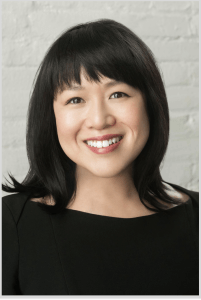 Jessamine Chan holds a B.A. from Brown University and a MFA from Columbia University. Chan worked as a reviews editor at Publishers Weekly, and her stories have appeared in Tin House and EPOCH. Her debut novel The School for Good Mothers is a New York Times Bestseller and was included on The Today Show host Jenna Bush Hager’s “Read with Jenna” book list. It was a finalist for the 2023 John Leonard Prize awarded by the National Book Critics Circle. Freckle Films, a production company owned by Jessica Chastain, purchased the rights for a TV adaptation of A School for Good Mothers.
Jessamine Chan holds a B.A. from Brown University and a MFA from Columbia University. Chan worked as a reviews editor at Publishers Weekly, and her stories have appeared in Tin House and EPOCH. Her debut novel The School for Good Mothers is a New York Times Bestseller and was included on The Today Show host Jenna Bush Hager’s “Read with Jenna” book list. It was a finalist for the 2023 John Leonard Prize awarded by the National Book Critics Circle. Freckle Films, a production company owned by Jessica Chastain, purchased the rights for a TV adaptation of A School for Good Mothers.
Lifetime Membership Award, Gary Anderson
Saturday 21 Oct 2023
8:30 AM - 8:55 AM Plenary Session 4, Welcome
Featured Speaker, Briana Morales, 2023 Illinois Teacher of the Year
Briana MoralesBanquet AB
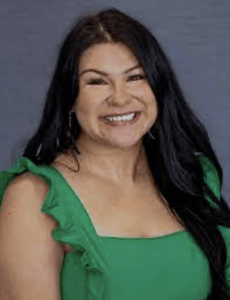 Briana Morales is a proud Latina and freedom fighter for students in alternative education, where she has spent her career loving and learning alongside students furthest from justice in East St. Louis, IL. Throughout her career she has helped students turn pain into power through narrative poetry of witness. Briana was honored in 2021 as a NCTE Early Career Educator of Color and more recently as the 2023 Illinois Teacher of the Year.
Briana Morales is a proud Latina and freedom fighter for students in alternative education, where she has spent her career loving and learning alongside students furthest from justice in East St. Louis, IL. Throughout her career she has helped students turn pain into power through narrative poetry of witness. Briana was honored in 2021 as a NCTE Early Career Educator of Color and more recently as the 2023 Illinois Teacher of the Year.
9:00 AM - 9:50 AM Breakout Session
Building Authentic Collaboration: Our Experiences as Dual-Enrollment Instructor and Embedded Librarian
Jayna Leipart-Guttilla and Delores Robinson, Illinois Valley Community CollegeCollaboration 140
Human Resources expert Tim Baker, in his 2019 text on performance and development strategies, theorizes 5 “pillars of authentic conversation” that allow colleagues to effectively collaborate and to “keep it real” in their working relationships. By identifying authentic approaches to task-focused conversations and people-focused conversations, Baker lays out a plan for co-workers in any environment to strategize, carry out their plans, address unhelpful behavior, build trust and appreciation, and move into the future. Faced with teaching dual-enrollment speech and composition classes in area high schools, the session presenters (a community college instructor and librarian) discuss their experiences as they formulated a strategy for collaborative teaching. They describe the Embedded Librarian role as it exists at their school and how their approaches to these shared courses have evolved along the way. Weaving in Baker’s terms and definitions of authentic conversation, the presenters share what worked and what didn’t in their collaborative teaching. The session also offers assessment data from when two of the dual-enrollment courses taught by the presenters were offered by high schools without a media center or librarian in their buildings.
To Build a Story: Eleven Questions for Beginning Fiction Writers
Randal HendeeCollaboration 142
How can you help your students write a good story from scratch? You offer them the basics of storytelling, one step at a time. With each step, you prompt them to build a story that is uniquely theirs. This workshop combines narrative theory with practical writing advice to help teachers help their students write an entertaining and emotionally resonant story.
Designing Assignments that Resist ChatGPT
Jennifer Connolly, Granite City High SchoolCollaboration 144
After a brief overview of how ChatGPT works, we'll talk about ways to design assignments that deter students from using AI generated texts. This is NOT a session on how to catch, police, or punish the use of AI, but to design more holistic and process-oriented tasks that ask students to do their own thinking.After a brief overview of how ChatGPT works, we'll talk about ways to design assignments that deter students from using AI generated texts. This is NOT a session on how to catch, police, or punish the use of AI, but to design more holistic and process-oriented tasks that ask students to do their own thinking.
Teaching Authentic Reading with Metacognitive Tools: The Double-Entry Research Log
Kayla Greenwell, Illinois Valley Community CollegeCollaboration 146
Kayla Greenwell, MA will lead an interactive workshop utilizing the double-entry research log (DERL) while explaining the pedagogical theory and neuroscience behind the learning tool. The DERL is a reading tool based on the design of 1980s dialectic journals with updates based on recent developments in cognitive science. While applying cognitive science to the classroom is not new, the changes are usually broad. The DERL is meant to be a simple tool that teachers can incorporate into their classrooms immediately.
10:00 AM - 10:50 AM Breakout Session H
A Small Place in the U.S.
Brittany Neil, Adlai E. Stevenson High SchoolCollaboration 140
From rural Wisconsin to wherever you are, we can choose authentic texts that offer both a mirror and a window to our students and their experiences of place. In the resort town of Elkhart Lake, teachers read A Small Place by Jamaica Kincaid and connected the tourism industry there to students’ experiences. Attendees will explore resources and ideas to create a similar unit or lesson for their classes.
Culminating Activities to Provide Connections
Kristin Runyon, Charleston High SchoolCollaboration 146
Traditionally, students have demonstrated their understanding and analysis of a text or topic through tests and essays. However, have you seen other teachers’ social media posts about One Pagers or Hexagons and weren’t sure how to introduce them to students? Hexagons and One Pagers can be used for single texts, to connect multiple texts. to explore themes, and across the curriculum. This presentation will share the basics of each activity and then give participants time to practice each one.
From Voices on Paper to Voices in the Room
John Hayward, Naperville Central High SchoolCollaboration 138
Get every student in your class writing and talking about complex, creative, personal and debatable topics. How? Transition from engaging journal prompts to various discourse strategies. Observe the positive difference these activities make in your classroom community and in their extended writing projects. Learn and practice these ideas in an interactive workshop and be inspired!
How to SEL-ebrate Learning: Incorporating CASEL-5 Framework into ELA Content Instruction
Jeremy Robinson, Kyle Fitzmyer, and Megan Delaney, J.S. Morton East High SchoolCollaboration 142
During this session, teachers will learn how to combine SEL behaviors and ELA curriculum. We will explore ways to take an SEL framework and use it as a lens for analyzing literature.
Sharing the Reader's Journey: Facilitating Book Club Podcasts
Laura Kammes-Bumm, Glenbard West High SchoolCollaboration 144
As choice reading continues to ensure that students of all abilities find enjoyment in reading, teachers incorporating choice reading into their curricula may seek ways to encourage student voice in discussions. This presentation will offer an idea to be applied for ongoing book club units or end-of-semester assessment. Students reading choice books trace their personal reactions to their reading to determine theme or genre-based connections with peer readers. They then apply podcast knowledge gained through class listening experiences to construct and record discussions of their reading journeys using the podcasting app Anchor.
11:00 AM - 11:50 AM Breakout Session I
AP Language: High Stakes + Low Stress = Remarkable Success
Jodie Seipp, O’Fallon Township High SchoolCollaboration 144
In an attempt to bolster enrollment and lower stress for both students and teachers, we have designed an AP Language and Composition class using a writing workshop model empowering students to explore topics that matter to them. Our AP Language and Composition pass rate exceeds 95%, and our enrollment in the course continues to grow each year. The course is designed to help students analyze everything from social media posts to peer-reviewed academic journals in an authentic, yet rigorous manner. Students complete nearly all work within the class period which helps to minimize student stress while maximizing time for in-class conferencing with the teacher. This session will focus on sharing ideas and strategies to help high achieving students who are often extremely busy and stressed find joy in researching, analyzing, and writing about issues they care about.
Communicate Extraordinarily with Tier 2 Vocabulary
Andrea Parker, Robert Fulton Elementary, ChicagoCollaboration 140
The interactive workshop will provide participants with research and strategies to implement engaging and meaningful speaking and writing strategies using tier two or high level vocabulary. The purpose of embedding tier two vocabulary into the speaking literacy is to improve student communication skills, especially written communications. Based on research, students write how they talk, and do not advance their verbal vocabulary after third grade. With more exposure, especially to students form low-income families, students can gain a repertoire of specific words to used on a daily basis, where they can identify more words and its synonyms in literature, increasing comprehension and reading/writing stamina.
Featured Author Session: Celebrating the Victories
Catherine Adel WestCollaboration 142
This Speaks to Me
Sheila YarbroughCollaboration 146
The task of nurturing the authentic voices of students within our classrooms can be one of the most important undertakings of teachers at all levels. Activities focusing on the listening, viewing, and reading interests of students can enhance their written and spoken communication skills as well as support social and emotional learning while encouraging the use of instructor provided analytical tools across various disciplines. The activity, “This Speaks To Me” allows students to share what they see, hear, and feel while developing writing, listening, and critical thinking skills. Finally, through practice and discussion participants can decide if “This Speaks To Me” can be a tool to use in their classrooms as well as how it might be adapted across age levels and abilities.
12:00 PM - 12:50 PM Breakout Session J
Art as entryways and escape routes
Keisha Rembert, National Louis University and Briana Morales, Gordon Bush Alternative CenterCollaboration 146
In today’s educational landscape, it is essential for students to have meaningful opportunities to engage in humanizing and antiracist pedagogy. Art can serve as both an entryway and an escape route to help students understand and challenge oppression. As texts, art can reveal our reality, highlight the difficulties of marginalized groups, and provide a space for antiracist discourse and action. In our classrooms, the examination and creation of art as story and justice allows students to confront the realities of racism and other oppressive forces in our everyday lives and challenge themselves and others to think critically about the ways in which it manifests in our society. Art can act as an entryway to ignite dialogue, inspire voice, build community and foster collective action. Additionally, it can also be used as an escape route to explore and express the complexities of racism and its implications, as well as a means to escape oppressive structures. . In this session ELA teachers will learn how to use art in ten ways in our antiracist ELA classrooms.
Authenticity as Method: Keeping it Real with Students
Angelo Bonadonna, Norman Boyer, ChrisTina Edwards, and Erin Giusto, Saint Xavier University; and Moira Bonadonna, Art in MotionCollaboration 138
The curricula and methods of ELA can be powerful tools for reaching disempowered, disconnected students and motivating them to act, think, interact, and appreciate through the enchantments of language and story and expression. In a discussion format, a panel of early career, veteran, and preservice teachers share their approaches to cutting through the malaise and resistance often promoted by school environments to reconceive school as a space for humanistic, creative, and moral involvement.
Keeping it Real: Shaping Adolescents’ Identity and Agency With YAL & Action Research
Cindi Koudelka Fieldcrest CUSD 6, Minonk/Aurora University and Katie Russell, Murphysboro CUSD #186 Murphysboro Middle SchoolCollaboration 142
The pandemic and social divisiveness has exacerbated inequities and made it difficult for teens to reflect on their place in the world. Apprenticing adolescents in action research grounded by inclusive Young Adult novels is an authentic and engaging way to reframe their civic learning and empower them to shape their world for healing, dreaming, and unity. The presenters will share work grounded in Freire's Critical Literacy theory and further scaffolded by scholarship in action research and positioning. The presenters will model how to use Young Adult Literature and Critical Action Research to provide students the participatory spaces to critique the world and engage them with relevant interrogation of texts and exploration of of political language, civic values, and their agency in the world (Cammarota & Fine, 2008, Freire, 2016; Mirra & Garcia, 2017). As educators continue to shape literacy practices, we recognize schools, one of the largest enculturating institutions in the world, have the opportunity to teach adolescents how to use literacy to navigate humanity & social contexts. This presentation is of interest to educators wishing to reimagine a liberating pedagogy that privileges inclusive adolescent voices.
Kindness: Can It Be Taught? Using Kindness As an Instructional Tool
Sophia Smith and Alexandria Ellison, J.S. Morton East High SchoolCollaboration 144
Yes, it can be taught! Through action research, daily interactions, project based learning, and a little help from technology, building a culture of kindness is not only feasible, it's part of the curriculum! Think you have too much to cover? This session will explore how you can tie kindness to content and course skills while promoting and supporting SEL.
The Larry Johannessen New Teacher Forum
Elizabeth Kahn, Northern Illinois UniversityCollaboration 140
This interactive discussion session will address fears, hopes, and strategies for success in teaching. Student teachers and teachers in their first few years of services are invited to talk about challenges and victories. Experienced teachers and others who care about the struggles of novice teachers are encouraged to attend and share their ideas.
1:00 PM - 2:00 PM Plenary Session 5, Past Presidents’ Saturday Luncheon
Past Presidents’ Luncheon, Featured Speaker, Catherine Adel West
Catherine Adel WestBanquet AB
 Catherine Adel West was born and raised in Chicago, IL where she currently resides. She graduated with both her B.A. and M.S. in Journalism from the University of Illinois - Urbana. She is the author of Saving Ruby Kingand The Two Lives of Sara. In addition, her work is published in Black Fox Literary Magazine, Five2One, Better than Starbucks, Doors Ajar, 805 Lit + Art, The Helix Magazine, Lunch Ticket, Gay Magazine, and Every Body Shines, a body positive anthology.
Catherine Adel West was born and raised in Chicago, IL where she currently resides. She graduated with both her B.A. and M.S. in Journalism from the University of Illinois - Urbana. She is the author of Saving Ruby Kingand The Two Lives of Sara. In addition, her work is published in Black Fox Literary Magazine, Five2One, Better than Starbucks, Doors Ajar, 805 Lit + Art, The Helix Magazine, Lunch Ticket, Gay Magazine, and Every Body Shines, a body positive anthology.
| Book Signing with Catherine Adel West Friday 2:00 p.m. - 2:30 p.m. Oberhelman Center for Leadership Performance |



